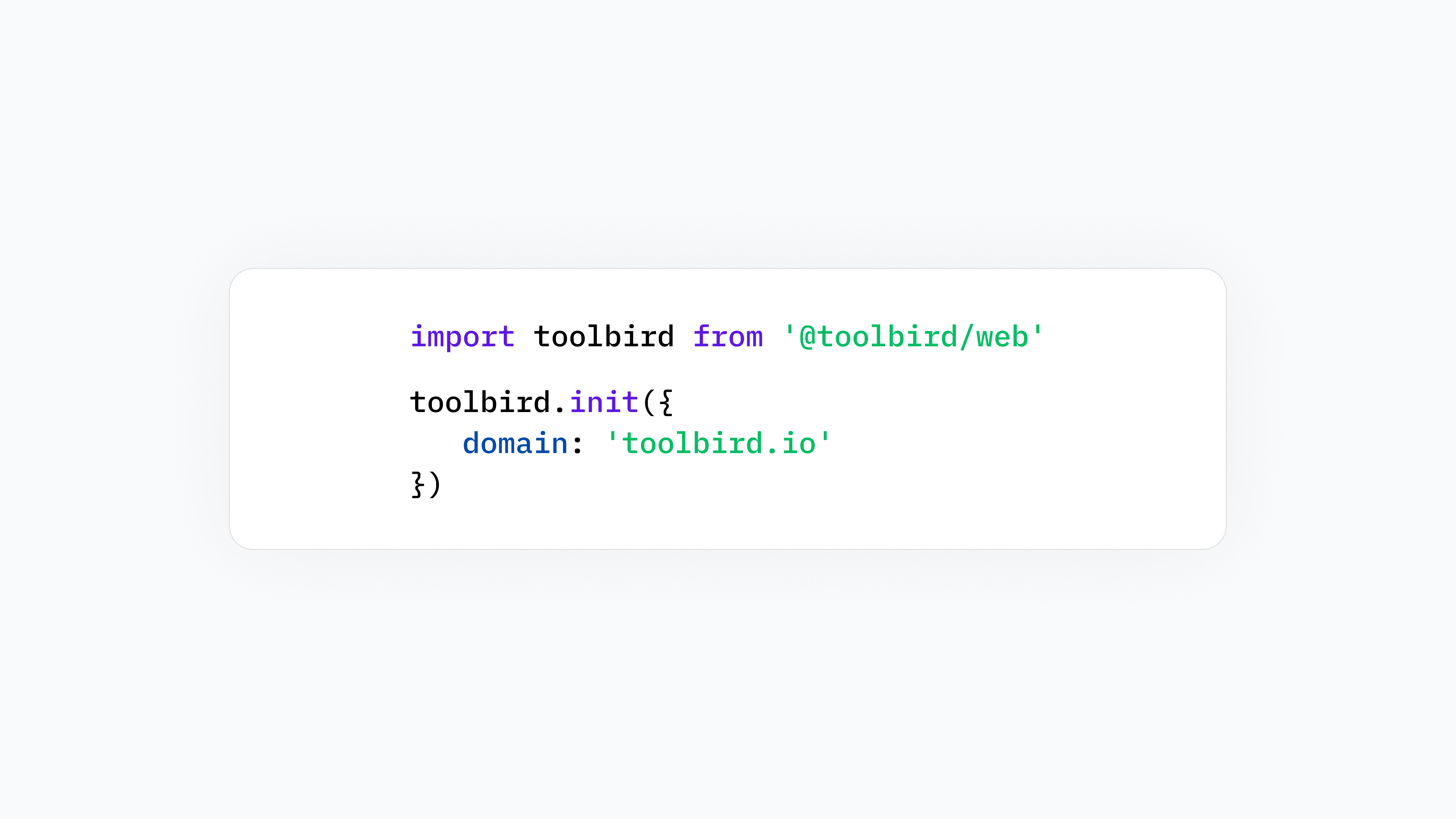Adding Webhooks to your SaaS Platform for your users
This blog post provides a practical guide on implementing webhooks in a forum builder SaaS like Centox.io, using JavaScript and Express.js. It follows the Standard Webhook Specifications and includes code examples for key components such as webhook management endpoints, webhook sending functions, and event triggering logic.
July 09, 2024•4 min read

Implementing Webhooks in Your Forum Builder SaaS: A Step-by-Step Guide
One of the products using Toolbird is our forum builder Centox. Yesterday I wrote about the Standard Webhook Specifications and about the best practices for implementing webhooks in your SaaS platform.
Today I will show you how to implement webhooks in a forum builder SaaS like Centox, using JavaScript and Express.js.
Step 1: Setting Up the Webhook Model
First, I created a mongoose model to store webhook configurations, which the users can create on the Centox platform.
const mongoose = require('mongoose')
const WebhookSchema = new mongoose.Schema({
userId: {
type: mongoose.Schema.Types.ObjectId,
ref: 'User',
required: true,
},
url: { type: String, required: true },
events: [{ type: String, enum: ['post.created', 'post.comment'] }],
secretKey: { type: String, required: true },
})
module.exports = mongoose.model('Webhook', WebhookSchema)Step 2: Creating Webhook Management Endpoints
Next, I added Express routes for users to manage their webhooks. This include creating, listing, and deleting webhook listeners.
const express = require('express')
const router = express.Router()
const Webhook = require('./models/Webhook')
const crypto = require('crypto')
// Create a new webhook
router.post('/webhooks', async (req, res) => {
try {
const { url, events } = req.body
const secretKey = crypto.randomBytes(32).toString('hex')
const webhook = await Webhook.create({
userId: req.user._id, // Assuming auth middleware sets req.user
url,
events,
secretKey,
})
res.status(201).json({
id: webhook._id,
url: webhook.url,
events: webhook.events,
secretKey: webhook.secretKey,
})
} catch (error) {
res.status(400).json({ error: error.message })
}
})
// List webhooks for a user
router.get('/webhooks', async (req, res) => {
try {
const webhooks = await Webhook.find({ userId: req.user._id })
res.json(webhooks)
} catch (error) {
res.status(500).json({ error: error.message })
}
})
// Delete a webhook
router.delete('/webhooks/:id', async (req, res) => {
try {
await Webhook.findOneAndDelete({
_id: req.params.id,
userId: req.user._id,
})
res.status(204).send()
} catch (error) {
res.status(400).json({ error: error.message })
}
})
module.exports = routerStep 3: Implementing Webhook Sending
Now, let's create a function to send webhooks following the Standard Webhook Specifications:
const axios = require('axios')
const crypto = require('crypto')
async function sendWebhook(webhook, eventType, eventData) {
const payload = {
id: `evt_${Date.now()}`,
type: eventType,
timestamp: new Date().toISOString(),
data: eventData,
}
const timestamp = Math.floor(Date.now() / 1000)
const signature = generateSignature(
webhook.secretKey,
webhook.id,
timestamp,
payload
)
try {
await axios.post(webhook.url, payload, {
headers: {
'Content-Type': 'application/json',
'webhook-id': webhook._id.toString(),
'webhook-timestamp': timestamp.toString(),
'webhook-signature': `v1,${signature}`,
},
})
console.log(`Webhook sent successfully to ${webhook.url}`)
} catch (error) {
console.error(
`Failed to send webhook to ${webhook.url}:`,
error.message
)
}
}
function generateSignature(secretKey, webhookId, timestamp, payload) {
const signaturePayload = `${webhookId}.${timestamp}.${JSON.stringify(payload)}`
return crypto
.createHmac('sha256', secretKey)
.update(signaturePayload)
.digest('base64')
}Step 4: Triggering Webhooks on Events
Now, let's integrate webhook sending into our forum operations. Here's an example for creating a new post:
const Post = require('./models/Post')
const Webhook = require('./models/Webhook')
async function createPost(userId, forumId, content) {
// Create the post
const newPost = await Post.create({ userId, forumId, content })
// Prepare webhook payload
const eventData = {
postId: newPost._id,
userId: newPost.userId,
forumId: newPost.forumId,
content: newPost.content,
}
// Find relevant webhooks and send them
const webhooks = await Webhook.find({
userId: userId,
events: 'post.created',
})
webhooks.forEach((webhook) =>
sendWebhook(webhook, 'post.created', eventData)
)
return newPost
}And here's a similar function for adding a comment:
async function addComment(userId, postId, content) {
// Add the comment
const updatedPost = await Post.findByIdAndUpdate(
postId,
{ $push: { comments: { userId, content } } },
{ new: true }
)
// Prepare webhook payload
const eventData = {
postId: updatedPost._id,
commentId: updatedPost.comments[updatedPost.comments.length - 1]._id,
userId: userId,
content: content,
}
// Find relevant webhooks and send them
const webhooks = await Webhook.find({
userId: updatedPost.userId,
events: 'post.comment',
})
webhooks.forEach((webhook) =>
sendWebhook(webhook, 'post.comment', eventData)
)
return updatedPost
}Conclusion
With these pieces in place, Centox now supports webhooks for post.created and post.comment events.
Users can register webhook endpoints through our API, and they'll receive real-time notifications when these events occur in their forums.
Remember, this is a basic implementation. In a production environment, you'd want to add features like:
- Webhook verification on the receiver's end
- Retry logic for failed webhook deliveries
- Rate limiting to prevent abuse
- Webhook logs for monitoring and debugging
By implementing webhooks, we've significantly enhanced the integration capabilities of our forum builder SaaS. This allows our users to build more complex and responsive systems around their forums, ultimately providing more value and flexibility.